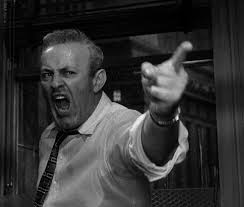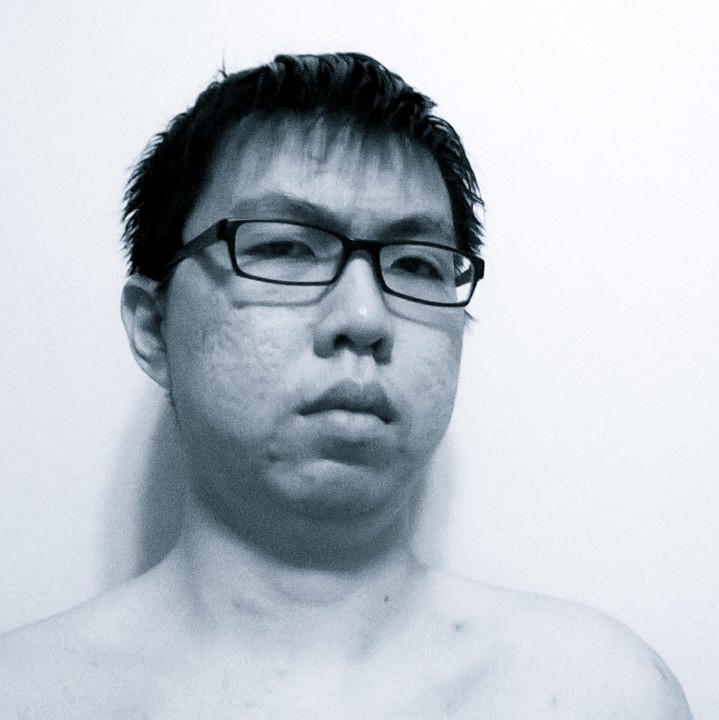By Alvin Wong, Change Maker
Secondary school life can be an extremely stressful phase of one’s life. It is a period of coming of age; it is a period of self-discovery, and one finds that it is not just enough to do well in the end-of-year examinations any more. “Fitting in”, whatever that term means, suddenly becomes of great importance. Everyone wants to be part of the in-group, because the out-group is where the losers and nerds end up. Also of extreme importance: having friends. If you have no friends, you are nobody. If you do not “fit in”, you will have no friends. If you have no friends, you may very well find yourself bullied and harassed without any recourse or way out of your situation.
 We often think of dominant masculinity as one of the driving forces behind gender-based violence in all its forms. Dominant masculinity is about strongly adhering to the traditional male gender role – restricting expressions of emotion, avoiding being feminine, displaying toughness and aggression, focusing on achievement, being self-reliant and non-relational, being misogynistic and being homophobic. There is a clear correlation between masculine attitudes and gender-based violence; what may be less obvious, however, are the ways in which dominant masculinity is oppressive towards men in addition to women.
We often think of dominant masculinity as one of the driving forces behind gender-based violence in all its forms. Dominant masculinity is about strongly adhering to the traditional male gender role – restricting expressions of emotion, avoiding being feminine, displaying toughness and aggression, focusing on achievement, being self-reliant and non-relational, being misogynistic and being homophobic. There is a clear correlation between masculine attitudes and gender-based violence; what may be less obvious, however, are the ways in which dominant masculinity is oppressive towards men in addition to women.
 I spent four years in a single-sex secondary school and for all four of those years, dominant masculinity never ceased to beat down on me. It was not just individual teachers making entire classes of 14-year-old boys do 20 push-ups in the parade square for not cleaning their classrooms well enough; it was my classmates uttering homophobic remarks directly at me as well as behind my back, being told to to “man up” and “suck it up”, my CCA seniors believing that physical punishment was the best way to fix problematic behaviours, my peers policing and taunting other students for feminine gestures and behaviours, the NCC sergeants subjecting their helpless juniors to endless rounds of push-ups and verbal abuse (which still counts as the smallest amount of power I have ever seen go to someone’s head) and my friend who engaged in self-injury for a time, partly because of the constant bullying he’d been receiving for not being on the bandwagon of dominant masculinity.
I spent four years in a single-sex secondary school and for all four of those years, dominant masculinity never ceased to beat down on me. It was not just individual teachers making entire classes of 14-year-old boys do 20 push-ups in the parade square for not cleaning their classrooms well enough; it was my classmates uttering homophobic remarks directly at me as well as behind my back, being told to to “man up” and “suck it up”, my CCA seniors believing that physical punishment was the best way to fix problematic behaviours, my peers policing and taunting other students for feminine gestures and behaviours, the NCC sergeants subjecting their helpless juniors to endless rounds of push-ups and verbal abuse (which still counts as the smallest amount of power I have ever seen go to someone’s head) and my friend who engaged in self-injury for a time, partly because of the constant bullying he’d been receiving for not being on the bandwagon of dominant masculinity.
 Perhaps you have fond memories of being in secondary school, but those are memories I would rather leave behind. In my secondary school, dominant masculinity was institutional – it was not just about particular individuals being aggressive and misogynistic, the entire school culture was poisoned by the apparent need to prove one’s worth as a man by behaving in supposedly manly ways. In many ways, it was a traumatic period for me as a queer boy; I tried my best to live through it, but the impact that those four years of exposure to dominant masculinity had on me is not up for debate. Five years may have passed since I walked out of that place, but the anxiety that I feel when being around gender role-conforming men will probably never leave me, and neither will my depression, onset by being forcibly drafted into the military, an authoritarian structure where dominant masculinity is rewarded with power and where one surrenders all personal agency and the ability to do what one thinks is right.
Perhaps you have fond memories of being in secondary school, but those are memories I would rather leave behind. In my secondary school, dominant masculinity was institutional – it was not just about particular individuals being aggressive and misogynistic, the entire school culture was poisoned by the apparent need to prove one’s worth as a man by behaving in supposedly manly ways. In many ways, it was a traumatic period for me as a queer boy; I tried my best to live through it, but the impact that those four years of exposure to dominant masculinity had on me is not up for debate. Five years may have passed since I walked out of that place, but the anxiety that I feel when being around gender role-conforming men will probably never leave me, and neither will my depression, onset by being forcibly drafted into the military, an authoritarian structure where dominant masculinity is rewarded with power and where one surrenders all personal agency and the ability to do what one thinks is right.
Secondary school gave me my first taste of how cruel and violent men can be. Secondary school made me question my identity and existence. Secondary school gave me a look into how a culture of masculinity breaks down special individuals with unique personalities little by little, day by day. Secondary school made me read up on gender theory and feminism because I could not believe that this was how the world was meant to be. We are more than just printed lists of personality traits that fit neatly into prescribed boxes. The enforcing of traditional male gender roles and stereotypes on a cultural and/or institutional level hurts everybody.
It certainly hurt me. I never wanted to be a man any more.
 About the author: A 21-year-old genderqueer person currently suffering from major depressive disorder, Alvin is in the process of piecing his life back together as he continues to face an uncertain future in Singapore. An independent writer and advocate for mental health awareness, gender equality and social justice, he hopes to make his mark on the world while he still can.
About the author: A 21-year-old genderqueer person currently suffering from major depressive disorder, Alvin is in the process of piecing his life back together as he continues to face an uncertain future in Singapore. An independent writer and advocate for mental health awareness, gender equality and social justice, he hopes to make his mark on the world while he still can.